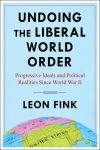
Reviewed by Eleanor J. Bader
Historian of education Diane Ravitch was once a prolific writer and speaker on the U.S. right. As a fervent opponent of feminism and other contemporary social movements, she spent more than three decades championing education reforms that included charter schools, vouchers, and rigorous standardized testing. These positions not only won her plaudits from conservative leaders and think tanks, but also led to high-level positions in the administrations of Presidents George H. W. Bush and Bill Clinton, and hobnobbing with the powerful.
Over time, however, skepticism began to seep in and Ravitch began to question her long-held beliefs. “I saw that the toxic policy of federally mandated high-stakes testing was inflicting harm on students and teachers by establishing unattainable goals and demonizing public schools,” she writes in An Education. She also began to recognize the class and racial bias endemic to standardized testing, noting that high scores typically reflect access to wealth and privilege rather than intelligence or the ability to learn. Moreover, she saw that schools were failing to achieve their mission. “The experience of schooling should prepare young people to live and work with others in a democratic society and to contribute to the improvement of that society. Schools should encourage students to be the best they can be, not to be standardized into a preset mold.”
But they are not doing this.
An Education, part memoir and part analysis of failed state and federal reforms, takes contemporary policy makers to task for this failure. Honest, forthright, and wise, it’s an inside glimpse into the machinations of power from someone who has seen how ideas are used, manipulated, and sold to the public. It’s an important and insightful contribution to the field of educational policy and a passionate defense of public education.
An Education: How I Changed My Mind About Schools and Almost Everything Else by Diane Ravitch. Columbia University Press. October 2025.
Reviewer bio: Eleanor J. Bader is a Brooklyn, NY-based journalist who writes about books and domestic social issues for Truthout, Rain Taxi, The Progressive, Ms. Magazine, the Los Angeles Review of Books, and The Indypendent.

